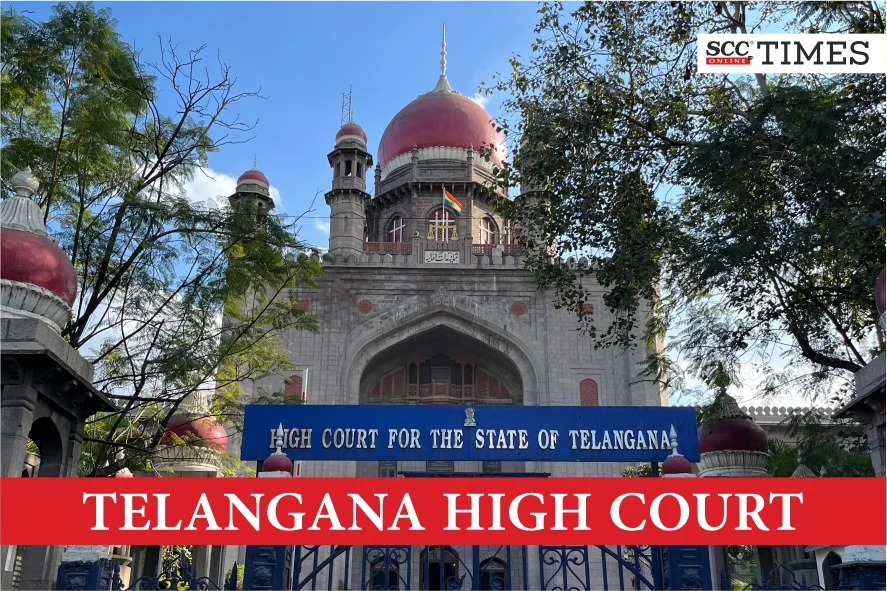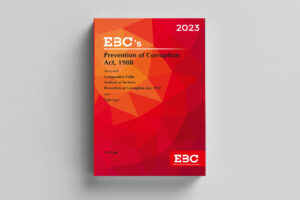Telangana High Court: In a criminal petition filed by former Minister Kalvakuntla Taraka Rama Rao (‘KT Rao’) under Section 528 of Bharatiya Nagarik Suraksha Sanhita, 2023 (‘BNSS’) seeking quashing of criminal proceedings arising out of an FIR registered under Sections 4091 read with 120-B2 of the Penal Code, 1860 (‘IPC’) and Sections 13(1)(a) read with Section
Background
KT Rao was the former Minister of the Municipal Administration and Urban Development Department (‘MA & UD Department’). On his initiative, the Government decided to host a car racing event titled the FIA Formula E Championship in Hyderabad. For this purpose, a tripartite agreement was entered between Formula E Operations Ltd. (‘FEO’), the MA & UD Department, the Government, and Ace Nxt Gen Private Ltd. (‘ACE’).
As per the tripartite agreement, ACE was the event’s promoter and was supposed to make payments to FEO whereas, the MA & UD Department would act as a host and provide all the civic amenities. Further, it contemplated conducting four events in Hyderabad, i.e., one event each in seasons. The total fee agreed for Seasons 9 and 10 was £ 90,00,000, i.e., Rs 96,38,28,000. Accordingly, season 9 of the said car race was conducted successfully.
However, as per the complaint filed by the Secretary of the MA & UD Department which later culminated into the present FIR , ACE backed out as the promoter. Thus allegedly, KT Rao discussed with FEO to make the Government act as a promoter/host for Season 10 and accordingly, directed the Hyderabad Metropolitan Development Authority (‘HMDA’) to act as a promoter and host the event.
As per the complaint, HMDA sought approval of the draft agreement which mentioned HMDA as the promoter, administrative sanction for payment of £90,00,000, i.e., approximately Rs 96 Crores along with an additional sum of Rs 50 Crores, and permission to pay the first installment of £22,50,000, i.e., Rs. 24,09,57,000 Crores, from KT Rao, which he granted.
Accordingly, HDMA remitted two installments of £22,50,000 through the Indian Overseas Bank.Therafter, FEO wrote an email terminating the initial tripartite agreement and informing ACE that FEO and the MA & UD Department would enter into a new agreement to host and conduct the remaining seasons. Accordingly, FEO and the MA & UD Department entered into a new agreement (‘the new agreement’).
It was further alleged in the complaint that HMDA was made to pay huge sums of money before the agreement and later, it was not made a party to the new agreement. Further, the total amount remitted to FEO was approximately Rs. 54.88 Crores. HMDA cannot spend more than Rs. 10 Crores without obtaining administrative sanction from the Government and the finance department. However, KT Rao abused his authority and without obtaining the necessary sanctions, directed HMDA to make such payments.
When a new Government came to power, they were served with an arbitration notice from FEO alleging breach of the new agreement. It was at this point that the new Government noticed the irregularities and the alleged loss caused to the State Exchequer. It was alleged that KT Rao with other accused Government Officials, namely, Arvind Kumar, the then Special Chief Secretary of the MA & UD Department, and B.L.N. Reddy, the then Chief Engineer of HMDA, conspired to cause loss to the State and a consequential gain to third parties.
Accordingly, the complaint and the present FIR were registered against KT Rao and his co-accused. Thus, the present petition was filed by KT Rao.
Analysis
The Court reiterated that the power to quash an FIR under Section 528 of BNSS was limited and should be exercised rarely, only in cases where continuation of the investigation would result in abuse of process or miscarriage of justice. The Court added that the State’s power to investigate could not be usurped, and this Court could not scuttle the investigation. Further, this Court could not go into the correctness of the allegations and conduct a mini trial while exercising its inherent power under Section 528. In this regard, the Court referred to the case State of Haryana v. Bhajan Lal 1992 Supp (1) SCC 335 and Neeharika Infrastructure Pvt. Ltd. v. State of Maharashtra (2021) 19 SCC 401.
Regarding the contention that the charge under Section 409 of IPC was not made out against KT Rao as there was no entrustment of the public money, the Court stated that the case Common Cause v. Union of India, (1999) 6 SCC 667 as relied upon by KT Rao was inapplicable to the present case. The Court said that KT Rao had the allegation that he abused his authority to misappropriate HMDA’s money. Therefore, it could not be said that KT Rao was using public money of which there could be no entrustment.
The Court further said that HMDA, which is under the control of the MA & UD Department, was a body corporate that could own property, enter contracts, sue, and be sued. The FIR clearly stated that HMDA’s money was misused. KT Rao, being the Minister of the MA & UD Department, had control over the HMDA, and he approved the note before signing the agreement. Therefore, prima facie, the funds belonging to HMDA were entrusted to KT Rao.
The Court also noted that the complainant was not a general member of the public but a Government Officer who alleged that HDMA’s money was misappropriated by KT Rao in conspiracy with other accused Officials. Therefore, the Court rejected the contention that there was no entrustment.
The Court stated that the other allegations about dishonest intention and misappropriation were matters of investigation.
Regarding the allegation under Section 13(1)(a) of the PC Act against KT Rao, the Court stated that the essential ingredients herein were fraudulent or dishonest misappropriation or converting the property for own use. Further, such property must be entrusted to the public servant or be under the public servant’s control. Noting this, the Court held that it was prima facie clear that HMDA’s funds were under KT Rao’s control. Whether he dishonestly misappropriated the same was a factual aspect to be investigated. Therefore, the Court held there was a prima facie case made out against him.
The Court stated that another reason why the allegations in the FIR required investigation was that an FIR only needed that the uncontroverted allegations mentioned in it prima facie made out a case warranting an investigation. Further, allegations in the FIR may constitute offences that were not mentioned in it. In cases where the ingredients of the alleged offences are not satisfied, but the allegations constitute other offences, this Court cannot quash the FIR. The Court stated that under Section 528 of the BNSS, it was not required to see which particular offence was made out, but whether the gravamen of allegations disclosed the commission of an offence. In this regard, the Court referred to the case of Somjeet Mallick v. State of Jharkhand, (2024) 10 SCC 527.
Stating the aforesaid, the Court said that the allegations herein indicated that KT Rao, without any approval from the State Cabinet or the finance department, directed HMDA to pay large sums of money to a foreign company. Whether he directed the same with a dishonest intention to cause gain to himself or third parties was required to be investigated. Thus, the Court held that the allegations made out of a prima facie case of wrongdoing and misappropriation of funds of the HMDA were enough to warrant an investigation. The Court added that investigating agencies needed to be given enough opportunity to investigate the allegations.
The Court placed reliance on the case State v. M. Maridoss (2023) 4 SCC 338 wherein the Supreme Court while dealing with a case where the petition to quash an FIR was filed the day after the registration of the FIR, held that the High Court therein erred in quashing the FIR without giving an opportunity to the investigating agency. The Court noted that similarly, in the present case, the complaint was lodged on 18-12-2024, the FIR was registered on 19-12-2024, and the present petition was filed on 20-12-2024.
The Court held that the investigating agency should have a reasonable opportunity to investigate and collect evidence. Therefore, this Court could not haste and thwart the investigation. The Court added that once it holds that there was a prima facie case, the other allegations about malice, absence of dishonest intention and misappropriation, failure to arraign the alleged third-party beneficiaries, etc., become a subject matter of investigation.
Accordingly, the Court dismissed the petition.
[Kalvakuntla Taraka Rama Rao v. State ACB, CIU, Hyderabad, 2025 SCC OnLine TS 1, decided on 07-01-2025]
Advocates who appeared in this case :
For the petitioner: Senior Advocate Siddharth Dave and A. Prabhakar Rao
For the respondent: A. Sudharshan Reddy, Advocate General, T. Bala Mohan Reddy, C.V. Mohan Reddy, and Additional Advocate General Tera Rajinikanth Reddy,
Buy Penal Code, 1860 HERE
Buy Prevention of Corruption Act, 1988 HERE
1. Section 316(5) of Bharatiya Nyaya Sanhita, 2023
2. Section 61(2) of Bharatiya Nyaya Sanhita, 2023








